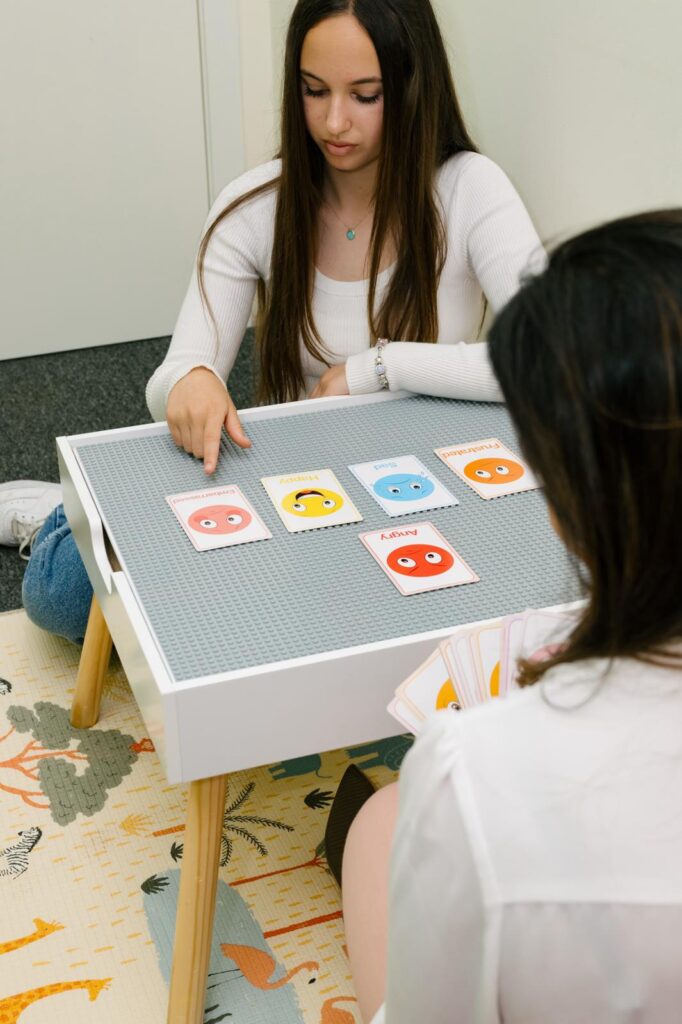Key components of therapy for adolescents focus on tailoring therapeutic interventions to meet the unique developmental, emotional, and cognitive needs of teenagers. These components create a framework that supports the adolescent’s growth, self-discovery, and problem-solving capabilities. Here are some of the critical elements:
1. Building Trust and Rapport: Establishing a strong, trusting relationship between the therapist and the adolescent is foundational. Teens must feel safe, respected, and understood for therapy to be effective. A therapist often works to connect on the teen’s level, showing genuine interest in their thoughts, feelings, and experiences.
2. Confidentiality: Ensuring confidentiality is crucial in teen therapy. Adolescents need to know that their conversations are private to feel comfortable sharing openly. Therapists will clarify the limits of confidentiality, including situations where they might need to break confidentiality for the teen’s safety.
3. Validation and Empathy: Teens often face emotional turmoil and confusion. Validating their feelings and experiences without judgment encourages emotional expression and builds self-esteem. Empathy helps therapists connect with teens and provides them with the emotional support needed to navigate their challenges.

8. Cultural Sensitivity: Understanding and respecting the adolescent’s cultural background is essential for providing effective therapy. This approach ensures that the therapeutic interventions are culturally relevant and respectful of the teen’s identity and experiences.
9. Integration of Interests: Incorporating the adolescent’s interests (e.g., music, art, sports) into therapy can enhance engagement and make the therapeutic process more enjoyable and meaningful for the teen.
110. Flexibility and Adaptability: Adolescents can be unpredictable, and their needs may change rapidly. Effective adolescent therapy is flexible, allowing for adjustments in therapeutic approaches and goals as the adolescent grows and evolves.
11. Focus on Strengths: A strengths-based approach highlights and builds upon the adolescent’s existing strengths and positive qualities. This approach fosters a sense of competence and confidence in the teen.

4. Developmental Appropriateness: Therapy interventions are adapted to match the adolescent’s developmental stage, cognitive abilities, and emotional maturity. This consideration ensures that therapy is relevant and accessible to the teen, making it more likely to be effective.
5. Collaborative Goal Setting: Involving adolescents in setting their own therapy goals empowers them and enhances their engagement in the process. It helps make therapy feel more relevant to their personal struggles and aspirations.
6. Skill Building: Therapy often focuses on teaching adolescents coping strategies, communication skills, problem-solving skills, and emotional regulation techniques. These skills are vital for managing the complexities of adolescence and fostering resilience.
7. Family Involvement: When appropriate, family members may be involved in the therapeutic process to improve communication, address family dynamics, and support the teen’s progress. However, the extent of family involvement is carefully considered to respect the adolescent’s need for privacy and independence.


Therapy for adolescents is designed to address a wide array of issues, including but not limited to:
Through therapy, adolescents can gain self-awareness, develop healthier coping mechanisms, improve communication skills, and strengthen relationships with family and peers. The supportive environment of therapy encourages personal growth and helps teens navigate the complex journey of adolescence with more resilience and confidence.
Adolescent therapy offers a multitude of benefits aimed at supporting teens through one of the most turbulent phases of their development. Engaging in treatment during these formative years can positively impact a teen’s mental health, emotional well-being, and overall life trajectory. Here are some of the key benefits:
1. Improved Mental Health: Therapy provides adolescents with strategies and tools to cope with mental health issues such as depression, anxiety, and stress. It can lead to a reduction in symptoms and a better overall sense of well-being.
2. Enhanced Self-Esteem: Teens often struggle with self-image and confidence. Therapy can help adolescents build self-esteem by fostering self-acceptance and highlighting their strengths and capabilities.
3. Better Emotional Regulation: Adolescents learn to identify, understand, and manage emotions more effectively. This includes dealing with anger, frustration, sadness, and other intense emotions in healthier ways.
4. Improved Communication Skills: Therapy can enhance adolescents’ ability to express their thoughts and feelings constructively, leading to better relationships with family, friends, and peers.

10. Healthy Social Skills: Therapy can assist adolescents in developing healthier social skills, enabling them to form and maintain positive relationships with peers and adults.
11. Self-Discovery and Identity Formation: Adolescence is a critical time for identity development. Therapy can provide a safe space for self-exploration, helping teens better understand themselves and develop a strong sense of identity.
12. Family Relationships: Family-based interventions can improve communication and relationships within the family, helping all members better understand and support each other.
13. Prevention of Future Issues: By addressing issues early in life, therapy can prevent the escalation of mental health problems and equip teens with lifelong skills for dealing with challenges.
14. Resilience Building: Therapy can help build resilience, empowering teens to bounce back from setbacks and confidently face future challenges.
These benefits collectively contribute to a more stable and fulfilling adolescence, laying the groundwork for a healthier adult life.

5. Conflict Resolution Skills: Adolescents can learn strategies to resolve conflicts with others in a more constructive manner, which is particularly helpful in navigating the complexities of teenage relationships.
6. Coping Strategies: Therapy provides teens with coping mechanisms to deal with life’s challenges, stressors, and pressures, including academic stress, peer pressure, and family dynamics.
7. Substance Abuse Prevention: For teens at risk of or struggling with substance abuse, therapy can offer support and strategies to resist substance use, address underlying issues, and promote recovery.
8. Support During Major Life Transitions: Adolescence is a time of significant change. Therapy can offer guidance and support as teens navigate transitions such as changing schools, entering high school or college, and dealing with changing family dynamics.
9. Improved Academic Performance: By addressing emotional and psychological issues, therapy can indirectly support better focus, motivation, and academic achievement.


Fill out the form below, and we will be in touch shortly to confirm.